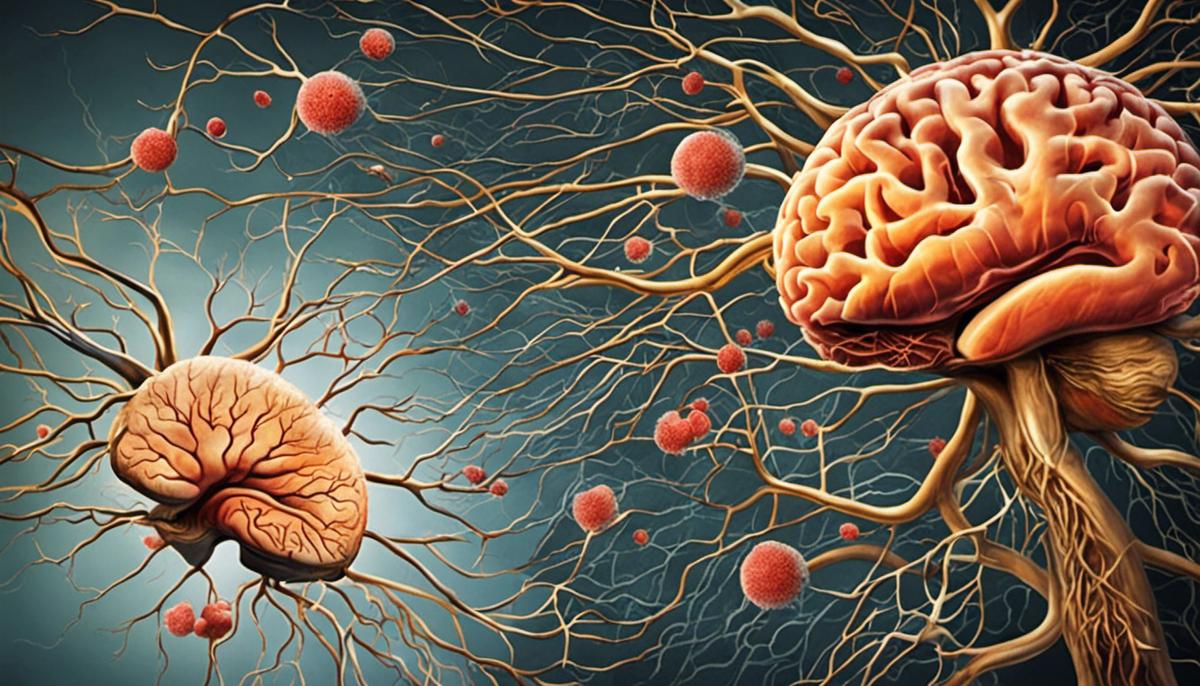As human beings, we encounter various forms of stress daily, which could be due to work pressures, personal life issues, or society’s challenges. The impacts of stress are widespread and profound, leading to acute and chronic effects that significantly affect an individual’s overall mental and physical health. It is therefore critical to understand the nature, causes, and repercussions of stress as it provides insights into how to effectively manage it. However, an often overlooked but critical factor in managing stress is social interaction. Social interaction, seen through emotional support, instrumental support, and informational support, plays an integral role in mitigating and managing stress. Furthermore, these forms of support can yield impressed results when integrated with strategic communication, active listening, empathy, and social skill development. In essence, fostering robust social networks can act as a powerful stress buffer and significantly enhance our quality of life.
Table of Contents
Understanding Stress and Its Impacts
Stress: Untangling Its Complex Impact on Physical Health and Psychological Well-Being
Among the myriad fascinations of neuroscience, one of the most captivating is the intricate interplay between the mind and the body. One glaring example of this interplay is the phenomenon commonly referred to as stress. Despite its ubiquity in everyday parlance, it is a subtle concept that veils a range of neurobiological processes and vast implications for human health and well-being.
Stress is generally perceived as a reaction to external or internal demands which tax or exceed an individual’s resources. On a physiological level, stress induces a flurry of physiological reactions commonly termed the “fight or flight” response.
Within the endocrine system, the hypothalamic-pituitary-adrenal axis and the sympathetic nervous system work in concert. An external stressor initiates the release of corticotropin-releasing factor from the hypothalamus, triggering the release of adrenocorticotropic hormone from the pituitary gland, which in turn prompts the adrenal glands to produce cortisol – a remarkable sequence that demonstrates both the synergy and complexity of the human body.
Simultaneously, the noradrenergic neurons of the sympathetic nervous system release norepinephrine while the adrenal glands release epinephrine into the circulatory system. These chemical messengers dramatically reconfigure the state of the organism, increasing heart rate, blood pressure, and the availability of glucose, among other adjustments, preparing the body for rapid response.
While this ‘fight or flight’ response is invaluable in the face of immediate danger or threat, chronic activation of this system – prolonged stress – can lead to deleterious health consequences. Chronic stress increases the risk of a plethora of maladies, ranging from cardiovascular disease and diabetes to metabolic syndrome and obesity. An overworked stress response system can also negatively affect immune function, resulting in increased susceptibility to infections and diseases.
Pushing beyond the physical, chronic stress permeates the domain of mental well-being. It has been evidenced as a significant risk factor for mental disorders such as depression, anxiety, and post-traumatic stress disorder. Moreover, the cognitive impact of stress cannot be overstated; it has the potential to impair memory, learning, and decision-making.
The subject of stress and its effects on physical health and psychological well-being present itself as a microcosm of the broader interplay within the human organism. Through a nuanced understanding of its neurobiology, researchers can inch closer to developing refined interventions and treatments, mitigating its impacts and improving quality of life. This exploration into the complexities of stress and its effects unravels the intricate interrelation of the body and mind, an inherent component of the human experience.

Role of Social Interaction in Stress Management
Social interaction, a cornerstone of human nature, plays an integral role in mitigating stress and minimizing its harmful effects on overall health. This phenomenon, which seemingly renders the proverbial ‘problem halved’, has a robust body of empirical evidence supporting its validity.
An intricate interplay occurs between social connections and stress processing, primarily involving the brain’s reward system—specifically regions like the ventromedial prefrontal cortex (vmPFC), the nucleus accumbens, and the amygdala. These complex networks serve as a nexus between vibrant social activity and the physiological response to stress.
Psychological research indicates a significant positive correlation between quality social connections and positive mental health outcomes. Human beings, as inherently social creatures, thrive in social networks. Engagement in social activities fosters relationships, cultivates a sense of unity, and promotes overall well-being.
The underlying principle lies in the robust neurochemical assertion that social interaction stimulates the secretion of oxytocin and endorphins—often referred to as ‘feel-good’ chemicals. These substances are instrumental in counteracting the physiological manifestations of stress, such as elevated heart rate and blood pressure. Essentially, this mechanism buffers the neural and cardiovascular repercussions emanating from perilous stress responses.
Significantly, social interactions facilitate communication—an innate human competency and coping mechanism. Verbalizing one’s experience or feelings helps foster understanding, generate supportive responses, and modulate emotional distress. Consequently, this has a stress-alleviating effect and promotes cognitive reappraisal—a fundamental aspect of resilience and emotional regulation.
Furthermore, social networks offer emotional and instrumental support during stressful situations. Mere awareness of having a reliable ‘safety net’ can significantly instigate stress resilience. Moreover, the act of giving support to others also fortifies psychological well-being—the resulting feeling of being valued and creating a positive impact on someone’s life can be an effective counterweight to anxiety and stress.
Empathy plays another crucial role in weaving the social fabric that combats stress effects. The act of empathizing enables the understanding and sharing of another’s psychological state, creating an affinity that strengthens social bonds and promotes emotional regulation.
From an evolutionary perspective, it is viable to suggest that this connection between social interaction and stress management is no coincidence. Living in groups created protective, cooperative environments where our ancestors could share resources, ward off predators, and rear their young—a case where survival relied on stress buffering by social interaction.
In conclusion, social interactions act as stress buffers because they invoke biological reward mechanisms, strengthen emotional resilience, facilitate communication and empathy, and provide tangible and intangible support. Current developments in fields of psychology, neuroscience, and sociology underline the importance and complexity of this relationship, garnering novel insights into an innately human phenomenon and ultimately fostering strategies for healthier lives.

Strategies for Enhancing Social Interaction in Stress Relief
While the complex processes involved in the body’s response to stress have been discussed comprehensively, the unique ways in which social interactions can be leveraged for stress management deserve special attention. As a salient component of virtually every human culture, social interactions are intrinsically valuable for ensuring long-term resilience and effective stress management tactics.
To enhance one’s social interactions for managing stress, a strategic approach revolves around meaningful engagement. This includes maintaining substantive conversations that move beyond surface-level discourse, providing a cathartic exchange that often leads to relief from stress-induced emotional burdens. This approach also promotes cortisol regulation due to the emotional bond created during such interactions. Further, sociological theories surmise that the value derived from such substantive engagement enhances one’s self-perception, thus mediating the adversities of stressful situations.
An additional maneuver is to foster empathy. The practice of empathy — to recognize and share in the emotions of another — fortifies and deepens social bonds. An empathetic stance has the added boon of enhancing emotional regulation, ameliorating negative affect and promoting psychological well-being, thus serving as an effective countermeasure against stress. Neuroscience lends credence to this approach; the act of empathizing activates neural pathways tied to oxytocin release, colloquially known as the “bonding hormone”.
Developing an altruistic disposition where one contributes to the welfare of others is also beneficial. Altruistic behaviors, owing to their essential social nature, promote the secretion of endorphins, which counteracts the physiological impacts of stress. Such an approach also bolsters one’s social standing within a group, enhancing feelings of security and acceptance — two fundamental needs intertwined with effective stress management.
Additionally, practicing active listening and asserting oneself appropriately during communication, aid in mitigating misunderstandings and managing expectations, thereby circumventing potential stress.
Regulating one’s social interactions extends beyond interpersonal behaviors. Surrounding oneself with positive social influences who encourage healthy coping mechanisms provides a buffer against stress. Similarly, warding off toxic relationships that exacerbate stress can have a transformative effect on one’s ability to effectively manage stress.
In conclusion, refining social interaction skills for better stress management requires the concerted efforts of engaging deeply, practicing empathy, fostering altruism, practicing active listening and assertion, and choosing the right social surroundings. The interplay between these strategies and the neurobiological underpinnings of stress response proves crucial in understanding stress and paving the path towards effective and sustainable stress management. Navigating the complexity of this interaction is a testament to the synergy between psychology, neuroscience, and sociology in improving human health and well-being.

Social interaction undeniably plays an essential role in combating and managing stress. By investing time and effort into building strong social networks, individuals can leverage the power of interpersonal and intra-personal relationships to develop resilience against stress. Moreover, by harnessing communication strategies and empathic abilities, among other social skills, individuals can further strengthen these networks, making them remarkably effective stress buffers. Therefore, it is evident that encouraging and enhancing social interaction is not only beneficial but also detrimental to appropriately manage the pervasive issue of stress. Subsequently, its influence and importance in stress management shouldn’t be underestimated or overlooked. Our ability to manage and thrive despite stress could very well depend on the strength of our social interactions and relationships.

Rajan Moonbeam is a dedicated health writer with a Master of Public Health (MPH) degree. Specializing in holistic wellness and preventive care, Rajan combines scientific research with natural approaches to health, offering readers practical advice on living their healthiest life. His work is a beacon for those seeking to navigate the path to well-being with integrity and balance.

